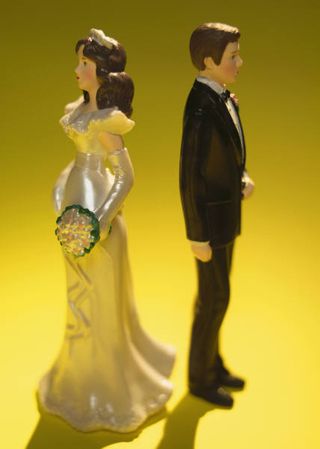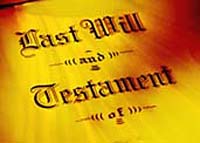 A scenario commonly encountered within estate planning is when an individual dies while negotiating a separation agreement with their spouse, or when in the midst of divorce proceedings. While a divorce order will void specific bequests to a spouse, merely initiating negotiations or proceedings will not.
A scenario commonly encountered within estate planning is when an individual dies while negotiating a separation agreement with their spouse, or when in the midst of divorce proceedings. While a divorce order will void specific bequests to a spouse, merely initiating negotiations or proceedings will not.
Married couples typically plan to leave significant portions of their estates to the surviving spouse. If a divorce were to occur, a change would need to be made to the estate plan to remove the ex-spouse. Most of the time, if you do not change your estate plan after getting a divorce, a judge will ordinarily disregard any specific bequests you made to your ex-spouse. The law assumes you would not want your estate to go to a former spouse.
However, as the Wills, Trusts & Estates Prof Blog points out in a recent article titled “When Death Occurs Mid-Divorce,” the same thing is not true if you are in the divorce process but your divorce has not yet been finalized. This is a common problem when a divorce has been filed and one of the parties passes away during the process. When that happens, it can cause issues with a family home that is owned by both parties. If the home is owned as joint tenants, then the property will automatically pass to the survivor. If the divorcing couple owns the home as tenants in common, however, the deceased party’s share of the home will go to his or her heirs.
 Six Philadelphia men forged, cheated and lied their way into collecting a dead woman's house and car, police said.
Six Philadelphia men forged, cheated and lied their way into collecting a dead woman's house and car, police said. Houston Estate Planning and Elder Law Attorney Blog
Houston Estate Planning and Elder Law Attorney Blog










